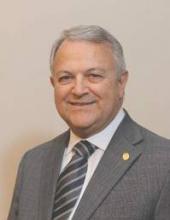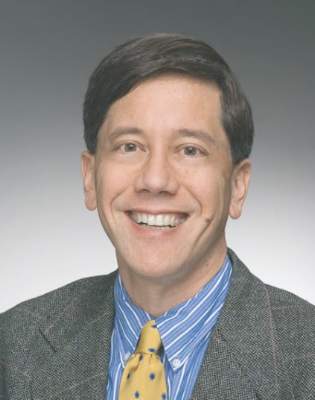User login
In an effort to find a more meaningful way to keep gastroenterologists up to date on the latest medical knowledge and at the same time remove some of the high-stakes concerns surrounding Maintenance of Certification, the AGA is proposing a new alternative to MOC.
The pathway, labeled G-APP (the Gastroenterologist: Accountable Professionalism in Practice) is a platform on which AGA wants to work with ABIM and other specialty societies to improve the recertification process. G-APP focuses on a broad array of 13 entrustable professional activities (EPAs) that define the practice of gastroenterology and is designed to be customizable to meet the needs of everyone from the general gastroenterologist to someone more highly specialized in a specific facet of the practice.
But more importantly, the proposal recommends ABIM eliminate some of the emphasis on MOC that could be a stumbling point in practice.
“Overall, the proposed G-APP alternative pathway eliminates the high-stakes examination and replaces it with active and adaptive learning self-directed modules that allow for continuous feedback, and is based solidly on learning theory,” Dr. Timothy Wang, AGAF, AGA Institute president-elect, and Dr. Michael Camilleri, AGAF, AGA Institute president, said in an editorial in the November issue of Gastroenterology.
The high stakes of not meeting MOC requirements has become more of an issue of late. Changes to the MOC standards with failure to meet those standards now leading to physicians being publicly labeled as “not meeting MOC requirements” has become what the authors describe as “a watershed moment” for physician support of the MOC program in general.
“The view by many practicing gastroenterologists was that many of the MOC requirements did not help them become better doctors and represented unnecessary paperwork and study of material that was largely unrelated to the delivery of quality care in their clinical practice,” Dr. Wang and Dr. Camilleri write. “Many also resented the annual fees and what they deemed to be excessive cost for the entire process.”
They also noted the evolution of emphasis on maintaining MOC and its impact on the ability to practice.
“While board certification was initially designed as simply a mark of distinction, it has grown, in some instances, to be required for hospital privileges, and thus the recertification examination has evolved into a high-stakes assessment,” they continue, noting the relatively low pass rate of about 85% for GI Board recertification exams during the past 5 years. “The fact that board certification has become a requirement for privileges at many hospitals is surprising, given the lack of evidence that MOC has led to improved patient outcomes.”
Dr. Wang and Dr. Camilleri also note that MOC does not offer a continual learning environment.
“The AGA does not view as acceptable a high-stakes exam that allows a learner to miss a third of the questions on the exam, receive no feedback or knowledge acquisition, and still pass,” they write. “The best physicians will always be the ones that look up the information they do not know, and refer to another colleague when they are out of their depth.”
In view of all of these considerations and the ABIM’s invitation for suggestions to improve the process, the Governing Board convened the MOC Task Force at the AGA headquarters in Bethesda, Md., over the weekend of June 5-6, 2015, to conduct a scholarly review of educational principles and determine the ideal pathway for recertification of gastroenterologists. The G-APP pathway is the product of that Task Force.
Stated Dr. Camilleri, “Maintaining certification should be a process of active learning, not high-stakes testing. AGA supports continuous education and professional development that enhances patient care. We want to work with ABIM and other partners to improve the recertification process.”
In an effort to find a more meaningful way to keep gastroenterologists up to date on the latest medical knowledge and at the same time remove some of the high-stakes concerns surrounding Maintenance of Certification, the AGA is proposing a new alternative to MOC.
The pathway, labeled G-APP (the Gastroenterologist: Accountable Professionalism in Practice) is a platform on which AGA wants to work with ABIM and other specialty societies to improve the recertification process. G-APP focuses on a broad array of 13 entrustable professional activities (EPAs) that define the practice of gastroenterology and is designed to be customizable to meet the needs of everyone from the general gastroenterologist to someone more highly specialized in a specific facet of the practice.
But more importantly, the proposal recommends ABIM eliminate some of the emphasis on MOC that could be a stumbling point in practice.
“Overall, the proposed G-APP alternative pathway eliminates the high-stakes examination and replaces it with active and adaptive learning self-directed modules that allow for continuous feedback, and is based solidly on learning theory,” Dr. Timothy Wang, AGAF, AGA Institute president-elect, and Dr. Michael Camilleri, AGAF, AGA Institute president, said in an editorial in the November issue of Gastroenterology.
The high stakes of not meeting MOC requirements has become more of an issue of late. Changes to the MOC standards with failure to meet those standards now leading to physicians being publicly labeled as “not meeting MOC requirements” has become what the authors describe as “a watershed moment” for physician support of the MOC program in general.
“The view by many practicing gastroenterologists was that many of the MOC requirements did not help them become better doctors and represented unnecessary paperwork and study of material that was largely unrelated to the delivery of quality care in their clinical practice,” Dr. Wang and Dr. Camilleri write. “Many also resented the annual fees and what they deemed to be excessive cost for the entire process.”
They also noted the evolution of emphasis on maintaining MOC and its impact on the ability to practice.
“While board certification was initially designed as simply a mark of distinction, it has grown, in some instances, to be required for hospital privileges, and thus the recertification examination has evolved into a high-stakes assessment,” they continue, noting the relatively low pass rate of about 85% for GI Board recertification exams during the past 5 years. “The fact that board certification has become a requirement for privileges at many hospitals is surprising, given the lack of evidence that MOC has led to improved patient outcomes.”
Dr. Wang and Dr. Camilleri also note that MOC does not offer a continual learning environment.
“The AGA does not view as acceptable a high-stakes exam that allows a learner to miss a third of the questions on the exam, receive no feedback or knowledge acquisition, and still pass,” they write. “The best physicians will always be the ones that look up the information they do not know, and refer to another colleague when they are out of their depth.”
In view of all of these considerations and the ABIM’s invitation for suggestions to improve the process, the Governing Board convened the MOC Task Force at the AGA headquarters in Bethesda, Md., over the weekend of June 5-6, 2015, to conduct a scholarly review of educational principles and determine the ideal pathway for recertification of gastroenterologists. The G-APP pathway is the product of that Task Force.
Stated Dr. Camilleri, “Maintaining certification should be a process of active learning, not high-stakes testing. AGA supports continuous education and professional development that enhances patient care. We want to work with ABIM and other partners to improve the recertification process.”
In an effort to find a more meaningful way to keep gastroenterologists up to date on the latest medical knowledge and at the same time remove some of the high-stakes concerns surrounding Maintenance of Certification, the AGA is proposing a new alternative to MOC.
The pathway, labeled G-APP (the Gastroenterologist: Accountable Professionalism in Practice) is a platform on which AGA wants to work with ABIM and other specialty societies to improve the recertification process. G-APP focuses on a broad array of 13 entrustable professional activities (EPAs) that define the practice of gastroenterology and is designed to be customizable to meet the needs of everyone from the general gastroenterologist to someone more highly specialized in a specific facet of the practice.
But more importantly, the proposal recommends ABIM eliminate some of the emphasis on MOC that could be a stumbling point in practice.
“Overall, the proposed G-APP alternative pathway eliminates the high-stakes examination and replaces it with active and adaptive learning self-directed modules that allow for continuous feedback, and is based solidly on learning theory,” Dr. Timothy Wang, AGAF, AGA Institute president-elect, and Dr. Michael Camilleri, AGAF, AGA Institute president, said in an editorial in the November issue of Gastroenterology.
The high stakes of not meeting MOC requirements has become more of an issue of late. Changes to the MOC standards with failure to meet those standards now leading to physicians being publicly labeled as “not meeting MOC requirements” has become what the authors describe as “a watershed moment” for physician support of the MOC program in general.
“The view by many practicing gastroenterologists was that many of the MOC requirements did not help them become better doctors and represented unnecessary paperwork and study of material that was largely unrelated to the delivery of quality care in their clinical practice,” Dr. Wang and Dr. Camilleri write. “Many also resented the annual fees and what they deemed to be excessive cost for the entire process.”
They also noted the evolution of emphasis on maintaining MOC and its impact on the ability to practice.
“While board certification was initially designed as simply a mark of distinction, it has grown, in some instances, to be required for hospital privileges, and thus the recertification examination has evolved into a high-stakes assessment,” they continue, noting the relatively low pass rate of about 85% for GI Board recertification exams during the past 5 years. “The fact that board certification has become a requirement for privileges at many hospitals is surprising, given the lack of evidence that MOC has led to improved patient outcomes.”
Dr. Wang and Dr. Camilleri also note that MOC does not offer a continual learning environment.
“The AGA does not view as acceptable a high-stakes exam that allows a learner to miss a third of the questions on the exam, receive no feedback or knowledge acquisition, and still pass,” they write. “The best physicians will always be the ones that look up the information they do not know, and refer to another colleague when they are out of their depth.”
In view of all of these considerations and the ABIM’s invitation for suggestions to improve the process, the Governing Board convened the MOC Task Force at the AGA headquarters in Bethesda, Md., over the weekend of June 5-6, 2015, to conduct a scholarly review of educational principles and determine the ideal pathway for recertification of gastroenterologists. The G-APP pathway is the product of that Task Force.
Stated Dr. Camilleri, “Maintaining certification should be a process of active learning, not high-stakes testing. AGA supports continuous education and professional development that enhances patient care. We want to work with ABIM and other partners to improve the recertification process.”


